
When Fiona Stanley looks back on her childhood in 1950s Sydney, she recalls the frightening specter of polio, which ended her Saturday pastime of going to the cinema. Public pools were also closed and parents kept their children at home, safe from the paralysing virus.
But those years also instilled in Fiona a fascination with the potential of research. Her family lived amid a tangle of bushland in La Perouse, in what she describes as “a funny little house below the infectious diseases hospital” where her father, Neville, was working to develop a vaccine.
“My first memory of my father – I was three or four – was of him blowing a spinal cord and brain out of a mouse which was infected with polio and injecting it into chimpanzees to develop a vaccine for polio,” Fiona says. “There was cholera; there were people in iron lungs. It was right on my doorstep.”
American researcher Jonas Salk, whose Salk vaccine was declared effective in 1955, was among the visionaries who visited the Stanley household, helping to shape young Fiona’s view of the world.
“We had this amazing network of international scientists coming through our house. I thought most of them were quite boring. I should have paid more attention!” Fiona laughs. “But there’s no doubt that, in that environment, you’re questioning and you’re thinking. I lived in this family where it was just so exciting because you could actually prevent a disease like polio. My mother was a creative, artistic classics scholar. So, we had the best of both worlds.”
Bu hikaye The Australian Women's Weekly dergisinin January 2021 sayısından alınmıştır.
Start your 7-day Magzter GOLD free trial to access thousands of curated premium stories, and 9,000+ magazines and newspapers.
Already a subscriber ? Giriş Yap
Bu hikaye The Australian Women's Weekly dergisinin January 2021 sayısından alınmıştır.
Start your 7-day Magzter GOLD free trial to access thousands of curated premium stories, and 9,000+ magazines and newspapers.
Already a subscriber? Giriş Yap
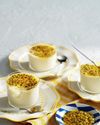
Maggie's kitchen
Maggie Beer's delicious veg patties - perfect for lunch, dinner or a snack - plus a simple nostalgic pudding with fresh passionfruit.
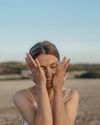
Reclaim your brain
Attention span short? Thoughts foggy? Memory full of gaps? Brigid Moss investigates the latest ways to sharpen your thinking.
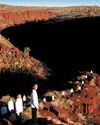
The girls from Oz
Melbourne music teacher Judith Curphey challenged the patriarchy when she started Australia's first all-girls choir. Forty years later that bold vision has 6500 members, life-changing programs and a new branch of the sisterhood in Singapore.
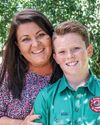
One kid can change the world
In 2018, 10-year-old Jack Berne started A Fiver for a Farmer to raise funds for drought relief. He and mum Prue share what happened next.
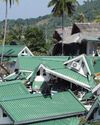
AFTER THE WAVE
Twenty years ago, the Boxing Day tsunami tore across the Indian Ocean, shredding towns, villages and holiday resorts, and killing hundreds of thousands of people from Indonesia to Africa. Three Australians share their memories of terror, loss and survival with The Weekly.
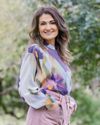
PATRICIA KARVELAS How childhood tragedy shaped me
Patricia Karvelas hustled hard to chase her dreams, but it wasn't easy. In a deeply personal interview, the ABC host talks about family loss, finding love, battles fought and motherhood.
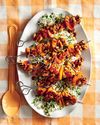
Ripe for the picking
Buy a kilo or two of fresh Australian apricots because they're at their peak sweetness now and take inspiration from our lush recipe ideas that showcase this divine stone fruit.
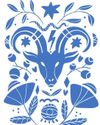
Your stars for 2025
The Weekly’s astrologer, Lilith Rocha, reveals what’s in store for your astrological sign in 2025. For your monthly horoscope, turn to page 192.
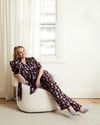
MEL SCHILLING Cancer made me look at myself differently'
One year on from going public with her bowel cancer diagnosis, Mel Schilling reveals where she's at with her health journey and how it's changed her irrevocably.
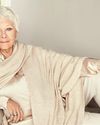
Nothing like this Dame Judi
A few weeks before her 90th birthday, the acting legend jumped on a phone call with The Weekly to talk about her extraordinary life – and what’s still to come.